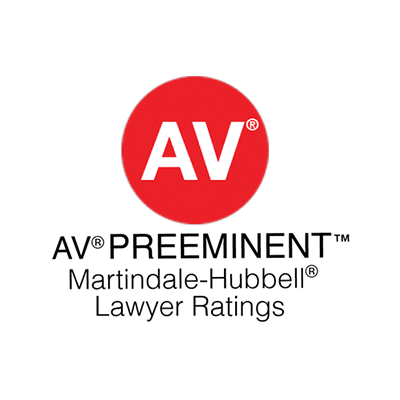Top whistleblower retaliation attorneys protecting employees fired for reporting fraud, waste, misconduct, and federal law violations.
With nearly four decades of experience, our firm has pioneered whistleblower protection law, earning our partners recognition as the top whistleblower retaliation attorneys in the world.
Since 1988, our unwavering commitment to these courageous individuals has been the foundation of our practice. We stand by you and advocate for your rights.
Our firm is dedicated to representing whistleblowers across all sectors, from federal employees to corporate executives. Our profound understanding of the intricate whistleblower law enables us to provide robust advocacy to safeguard your rights.
Our track record speaks for itself. We’ve secured victories against the most powerful corporations, law firms, and government agencies, including Fannie Mae, J.P. Morgan Chase, Halliburton, the FBI, the Department of Defense, the EPA, and many more.
Contact our anti-retaliation lawyers today for a free and confidential consultation. We will discuss your legal options and ensure your rights are protected.
Our Anti-Retaliation Attorneys
Our experienced attorneys possess the deep legal knowledge, strategic insight, and unwavering commitment necessary to navigate the complexities of whistleblower retaliation law and fight for the justice our clients deserve. Our founding partners are rated AV Preeminent, the highest peer rating standard award, among other significant awards. In March 2024, founding partner Stephen M. Kohn was named by Forbes as one of America’s Top 200 Lawyers. But our successes are what distinguish us as whistleblower protection attorneys. Please continue reading to learn about our victories.
Landmark Victories Against Retaliation
Our success in representing retaliation whistleblowers is unparalleled. Our firm has set numerous precedents in cases establishing strict rules prohibiting settlement agreements restricting the right of employees to make reports to government regulators. Below are a few of our most famous retaliation cases:
Bunnatine “Bunny” Greenhouse
We proudly represented the former chief contracting officer for the U.S. Army Corps of Engineers Bunnatine “Bunny” Greenhouse, who bravely exposed a potential $7 billion no-bid contract fraud scheme involving Halliburton. Despite facing severe retaliation, Ms. Greenhouse, with our support, achieved a settlement with the Army Corps of Engineers. Her disclosures also spurred crucial reforms outlawing no-bid contracts, a story highlighted by CBS News in 2019.
Marvin Hobby: Nuclear Whistleblower
We successfully represented Marvin Hobby, a corporate manager at Georgia Power Company, who faced retaliation after raising concerns about the accuracy of testimony in another whistleblower case and the legality of the company’s structure.
Despite eliminating his position, our tenacious advocacy through the U.S. Court of Appeals for the 11th Circuit resulted in a landmark victory. Mr. Hobby was awarded reinstatement, damages, and fees totaling over $5 million – the largest damage award ever obtained under federal environment and nuclear whistleblower laws.
Shahiq Khwaja v WMATA
We represented former WMATA employee Shahiq Khwaja in a False Claims Act lawsuit alleging the agency improperly awarded a $14 million contract to Metaformers, Inc. without fair competition despite certifying otherwise for federal funds. The government contended this non-competitive award lacked justification and created a conflict of interest. As a result of the settlement, Mr. Khwaja received approximately $996,480.
Separately, the U.S. Department of Transportation’s Office of Inspector General found that WMATA likely retaliated against Mr. Khwaja for raising concerns, leading to a $390,000 settlement for his wrongful termination claim.
Legal protections are available if you are a whistleblower who has experienced retaliation. Get a free and confidential consultation to learn about your legal rights.
Precedent-Setting Case That Shaped Whistleblower Law
Our success in representing retaliation whistleblowers is unparalleled, and our impact extends beyond individual cases. We have also been instrumental in shaping the legal landscape in several ways, including the following:
- Establishing Strict Rules Against Restrictive Settlement Agreements: Our firm has set numerous precedents prohibiting settlement agreements that attempt to silence employees from reporting wrongdoing to government regulators.
- Advocating for Key Legislative Reforms: Our whistleblower retaliation attorneys have actively championed crucial protections for federal employees, contributing to the Whistleblower Protection Enhancement Act.
- Rulemaking: We have also recommended provisions that strengthened corporate employee whistleblower protections, incorporated into the Dodd-Frank and Sarbanes-Oxley Acts.
Groundbreaking Cases for Federal Employees
KKC has proudly represented federal employees in several groundbreaking cases, helping them leverage alternative legal avenues to fight retaliation. Our commitment to federal whistleblowers is demonstrated through landmark cases that have expanded their rights:
- William Sanjour v. EPA: We represented high-level EPA employee William Sanjour who challenged rules restricting the rights of agency workers to communicate with environmental community groups, setting a precedent for federal employee free speech.
- Bonds v. Leavitt: We represented Dr. Duane Bonds, a leading NIH researcher on sickle cell disease who faced retaliation, including sex discrimination and harassment, after blowing the whistle on unauthorized cloning.The Fourth Circuit’s 2011 ruling in this case was a landmark victory. It established that a “mixed case” involving both retaliation and discrimination could be pursued in federal court under the Civil Service Reform Act without the need to exhaust administrative remedies solely through the often-delayed MSPB process.
- Ikossi v. Department of Navy: This precedent-setting case involved a female whistleblower Dr. Kiki Ikossi who faced retaliation after reporting gender discrimination. The rulings established that federal employees experiencing both discrimination and retaliation can combine their complaints and pursue their cases in federal court if the Merit Systems Protection Board (MSPB) experiences delays.
Please visit our whistleblower retaliation case studies page to see more retaliation cases that we’ve won.
Experience in All Whistleblower Retaliation Laws
Whistleblower protection laws vary significantly depending on the government agency or industry involved. Both federal and non-federal whistleblowers can find legal safeguards in various laws and statutes, which can also provide avenues for financial rewards and compensation for damages suffered due to retaliation.
Each law has specific provisions, including reward programs and mechanisms for claiming damages if an employer retaliates against a whistleblower. Generally, whistleblower reward programs offer a mandatory payout, typically ranging from 10% to 30% of the penalties the government recovers due to the disclosed information. Beyond potential rewards, whistleblowers can also pursue separate claims for damages resulting from retaliation. These potential damages can include:
- Reinstatement to their former position.
- Back pay, covering lost wages.
- Payment for lost benefits.
- Special damages, to cover specific financial losses.
- Coverage of attorney fees and expert witness fees and costs.
- Front pay, for future lost earnings in some cases.
- Damages for loss of reputation or emotional distress may also be available under certain laws.
Key Whistleblower Programs and Laws Include
- Securities and Exchange Commission (SEC) Whistleblower Program: The SEC Whistleblower Program rewards those reporting securities violations and prohibits retaliation.
- Commodities Futures Trading Commission (CFTC) Whistleblower Program: The CFTC Whistleblower Program ewards and protects those reporting violations of the Commodity Exchange Act.
- Internal Revenue Service (IRS) Whistleblower Reward Program: The IRS Whistleblower Program rewards and protects those who report tax fraud and money laundering.
- False Claims Act: The False Claims Act protects and awards individuals reporting fraud in government contracts with various state-level counterparts.
- Dodd-Frank Act: The Dodd-Frank Act offers protection and rewards for whistleblowers reporting securities and commodities fraud, with rewards paid through the SEC and CFTC programs.
- Sarbanes-Oxley Act (SOX): The SOX protects whistleblowers who disclose violations of SEC rules or other federal laws and includes anti-retaliation measures.
- Whistleblower Protection Act (WPA): The WPA protects federal employees who report government waste and corruption from employment-related repercussions.
- Anti-Money Laundering Act: Various AMLA laws including the FinCEN Whistleblower Program contain an anti-retaliation provision requiring complaints to be filed with the Department of Labor within 180 days of the adverse action.
- Occupational Safety and Health Laws (OSHA): Administered by the Department of Labor, these encompass numerous statutes (like the Clean Air Act and Affordable Care Act) protecting whistleblowers in workplace safety. Filing deadlines range from 30 to 180 days.
All whistleblower laws have statutes of limitations, which set deadlines for filing complaints. These deadlines can be as short as 30 days or extend to several years. The specifics of your disclosure and the method used will determine your rights and the applicable deadlines.
Get Legal Assistance Today
If you’ve been retaliated against, contact our firm for a free and confidential case evaluation. Our team can help you understand your rights guide you on federal and state whistleblower laws applicable to your case.













